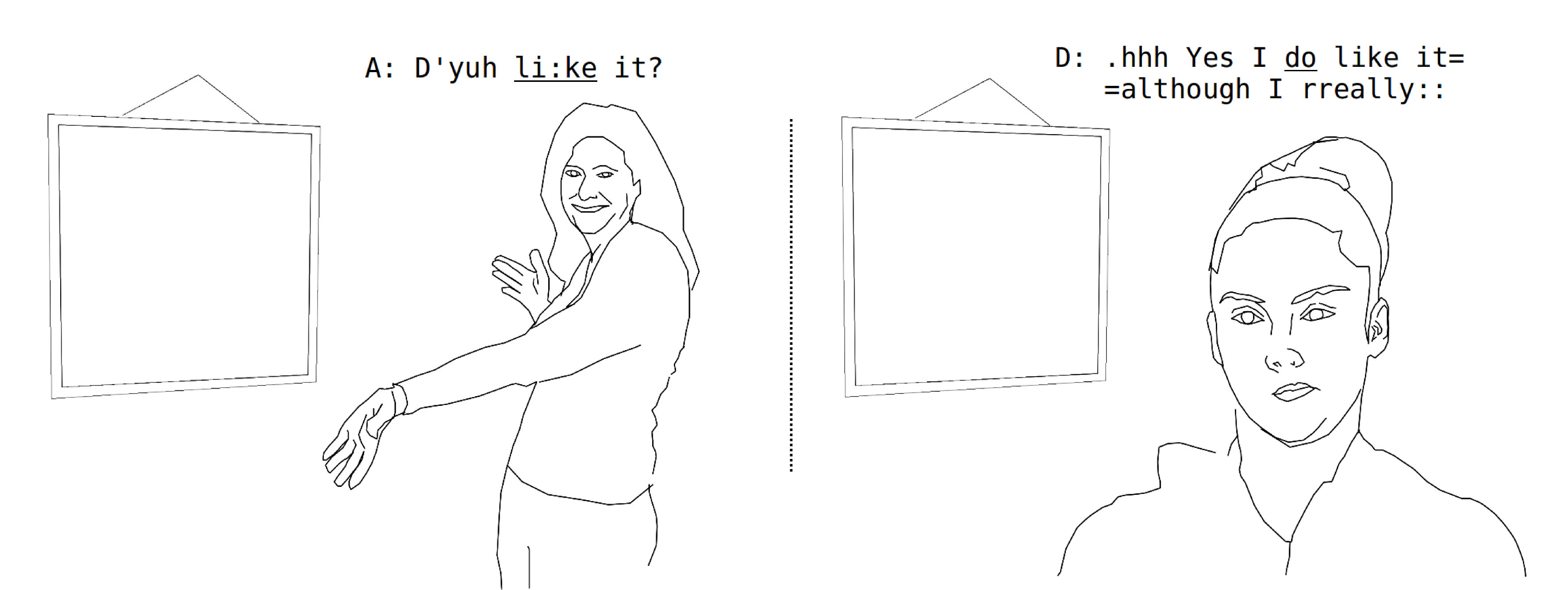Accounting for taste in everyday talk
How do we do evaluations in general, and aesthetic judgments in particular? This research project explores these actions as practical procedures in conversation.
Update: October 2016 There’s a piece about arts evaluation on the Arts Professional website based on findings from this research. I also wrote a short, accessible explanation about my core study of Tino Sehgal’s (2012) Turner prize-nominated artwork These Associations.
Empirical investigations of evaluations where there are no clearly established standards for judgment often turn to aesthetic philosophy to answer questions about how people make subjective yet normative judgments. Studies tend to adopt combinations of ‘internalist’ theories of aesthetic experience, which suggest subjective judgments are normatively produced via universal cognitive or psychological processes, or ‘externalist’ theories, which suggest normativity is habituated by social or cultural factors. The problem for both is how to identify the relevant processes or factors involved in evaluations in any given situation on an empirical basis.
This study uses conversation analytic methods to explore naturally occurring evaluations between visitors to the Tate Modern as they encounter an unconventional artwork. This identifies the interactional procedures of noticing and assessment they use to establish which processes and factors are normatively relevant to participating in each evaluation. These procedures are compared to examples of similarly structured patterns of talk from a large corpus of conversations in diverse settings and demographic groups based on a conversation analytic version of the British National Corpus of Spoken English. The findings show how participants use equivocation as a strategy to involve others in evaluations that can generate the normativity of a judgment through the reflexive accountability of its interactional process. Assessments are also shown to function as evaluative practices alongside noticings and other actions produced via specific retro-sequential patterns in talk as interactionally relevant displays of participants’ cognitive/perceptual states. This thesis provides a respecification of aesthetics as an interactional practice that enables empirical studies to generalize findings between evaluative contexts, factors and processes by exploring how people establish normative, relevant standards for evaluation in any interactional situation.
This project was supervised by Pat Healey and Graham White and funded by the EPSRC through the Media and Arts Technology Programme, a Research Councils UK Centre for Doctoral Training EP/G03723X/1.
